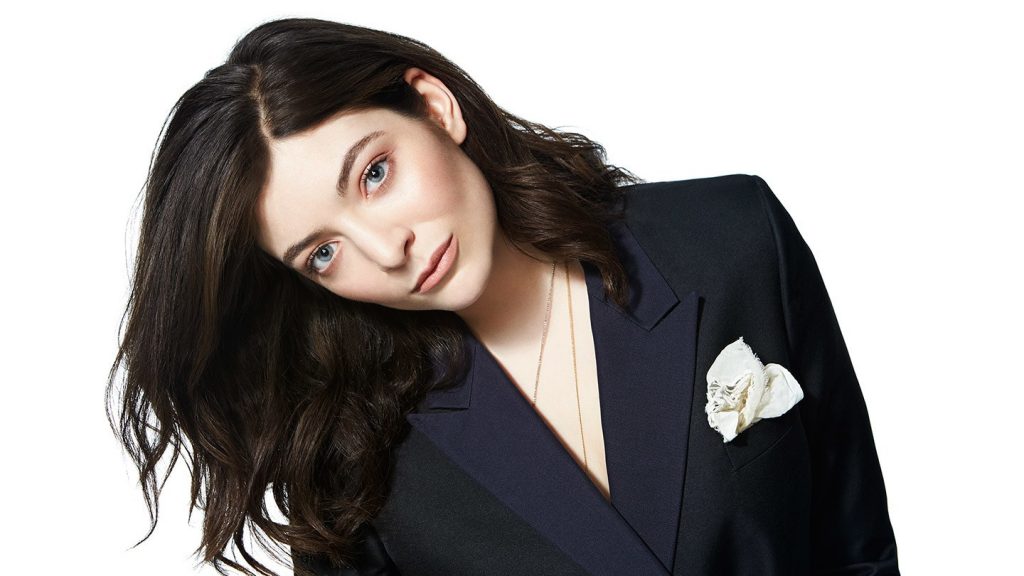Alex compares Lorde’s slightly older music to Lorde’s new music.
Listening to Lorde’s new album Melodrama on its release date, I initially found myself mildly disappointed. Like so many others who simultaneously love pop music and prefer fewer sound effects and ‘rapper of the moment’ cameos than Katy Perry offers, Lorde’s Pure Heroine held a deep appeal. It was pop music that moved past the feeling of flaky teen movies of the 1990s into the post-Easy A world of more contemplative teenage pondering found in The Myth of the American Sleepover and Boyhood. Pure Heroine was less a stylization of youth than it was a thoughtful reflection of it.
When Royals was introduced to me, it came in music video form, which was helpful given that the clip visually represented Lorde’s music perfectly. Royals is a sparse song, so the video depicts Lorde performing in a sparsely furnished home, with cutaways to the nameless youths she sang so prominently about gallivanting throughout the suburban neighbourhood that has brought on their youthful malaise. The appeal of Lorde’s music was that she was the youth who felt wise beyond her years – although given that she came out of relative nowhere, nobody could know Lorde was (then) sixteen the first time they listened to Royals – and the rest of her album took a wide view of the aimlessness of youth in a way that felt uncommon. Here was a sixteen-year-old writing songs with a word like “hyperreal*,” something that was always going to be appealing to dummies like me.
*Melodrama’s equivalent of the hyperreal lyric is Lorde’s overthinking of punctuation use. (Not the obvious option Supercut, which is cool at first mention but pretty immediately becomes overbearing when you realize she’s going to say that word forty more times throughout the song.)
Much of the appeal of Pure Heroine was that in a musical world of jittery, noise-laden production, Lorde and co. left room in between the beats. She knew how to dial back the ProTools at a time when so many people dialed it up to 11. Her album sounded like a movie filmed in primarily all-seeing wide-angle wide shots; the opener Tennis Court sounds like the musical equivalent of a gorgeously set up but ultimately utilitarian 24mm long take (which, coincidentally, is a description of its music video). There were exceptions to this, of course – Team is my least favourite song on the album because it is the busiest-sounding track on the album – but primarily in the realm of seeing sounds (as filmmaking techniques), the idea held. The album’s best songs, Ribs and Buzzcut Season, felt like a beautifully but patient wide view of the feeling of being a teenager. Which, of course, is nothing new, but is essential setup for what was to eventually come next.
Melodrama, on the other hand, felt busier. Both Sober and Sober II (Melodrama) sound Kanye-influenced, and some songs seem to morph into other songs within the same track (most obviously Hard Feelings / Loveless, or The Louvre evolving into some guitar work that sounds strangely similar to the score from Ruby Sparks). The music is still sparser than the average pop music, but compared to Lorde’s previous work it certainly is not. Which (of course) should have been expected, but wasn’t necessarily what I personally wanted it to be.
The visual feeling given off by this album is one of a faster cut version of the movie we’ve seen before. To use a confusing comparison point, Pure Heroine is Paul Thomas Anderson’s The Master (a movie of patient, mostly immobile long takes) while Melodrama is more like Magnolia (a movie that featured tons of different, comically fast dolly shots cut quickly and interspersed with a long take or two – these long takes are the piano ballads on Melodrama*). And while Green Light’s video isn’t necessarily the hyperactive visual accompaniment I might be attempting to describe here, it’s inarguable that it moves quicker than Royals.
*If you listen to Steven Hyden’s Celebration Rock podcast, you’ll know he made a similar comparison for Radiohead albums recently, comparing Boogie Nights to OK Computer and Kid A to There Will Be Blood. My comparison was written before this podcast was released, but believe what you will.
Like anytime something in life ends up being something different from what you wanted – which is ultimately what a less than positive review is meant to describe – I was disappointed. There were elements I loved, perhaps most paradoxically the elements that strayed furthest from Pure Heroine – Sober is (probably) my favourite song, mostly because of the vocal stabs that create the backing music – and the most annoying one was what seemed to try too hard to replicate some of the feeling of what came before (Supercut lyrically sounds too much like something Lorde felt would satiate all of the people like me who got way too excited about a pop star using the word hyperreal). The day was not ruined, but it was lessened, as somebody I thought I could count on had let me down. Perhaps, though, it was entirely my fault.
A few days later, I walked home from my office late at night, partially to listen to Melodrama again. The album sounded infinitely better in the middle of the night, just like her previous album did, because Lorde writes pop songs that tend to sound like they were written by somebody who can’t sleep. (A walk like this had happened years previous with Pure Heroine in a different city, and there are some songs I think I like exclusively because of this walk.) My disappointment lessened – which always happens when you re-experience something that strayed from your initial expectations – but my feelings about the music remained.
A popular note to be made in comparing Lorde’s albums is to say that Pure Heroine takes a more all-encompassing look at the idea of being a teenager, while Melodrama focuses more specifically on Lorde’s personal experience. (As must be noted, Melodrama is about a breakup Lorde went through.) For once, this contrarian cannot disagree, but I still felt the previous was more valuable. To call Lorde the voice of a generation is idiotic for all the obvious reasons that I have no interest in discussing, but she so perfectly captured the wide view of the world of teenagerhood that it was immensely interesting. The lenses on Melodrama have longer focal lengths and a more narrow focus, which can be and is more appealing to many, but the perfect wide shot is always more difficult to attain. There are fewer obstacles to getting a shot with that long lens, fewer things to be considered.
The thinking is the older you get, the more you know, so theoretically the world should seem more wide open to you as you age. I’m unquestionably smarter today than when I rode the bus with my knees tucked in so many years ago, and yet the world feels smaller today, due to a variety of natural elements of existence. Friends fall away, hearts get broken, and you become set as the sort of person you are, the sort of person who cannot break away from what people already think of you. Lorde is a decade younger than I, but the idea surely persists; Pure Heroine was about ‘us’ while Melodrama is about ‘I.’ The commentary on the aimlessness of youth is gone, replaced by the inability to reset one’s aim. Now you sing about what’s right in front of you, because that’s all your brain will allow.
Melodrama is a better album than I thought.





